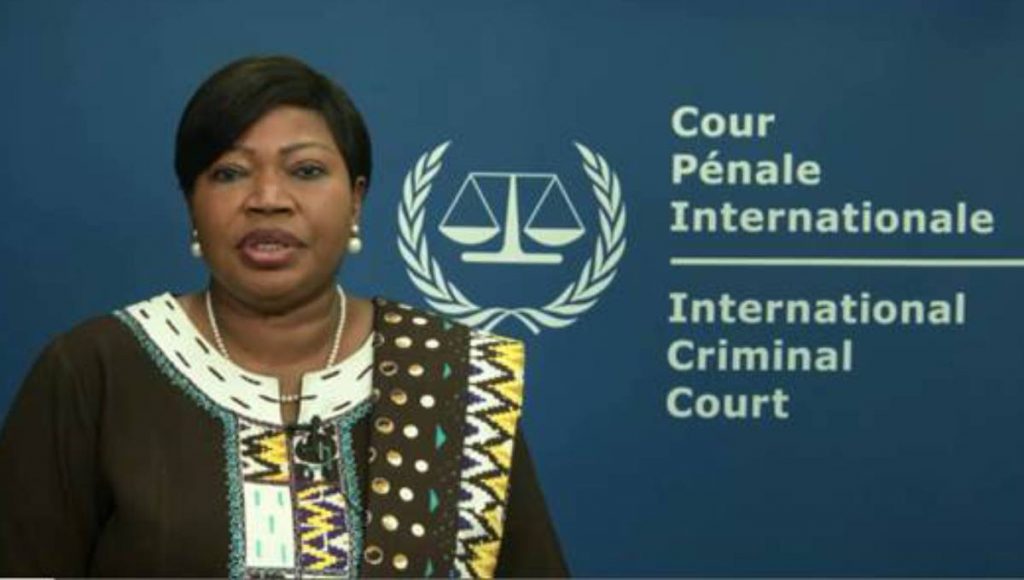Dhaka, July 4 – The Prosecutor of the International Criminal Court (ICC) on Thursday requested its Judges to
As Myanmar is not a State Party to the Rome Statute, but Bangladesh is, it is important to keep in mind that the
Investigating deportation will, however, mean taking a close look at the alleged violence that left the Rohingya no genuine choice but to flee Myanmar.
The request seeks authorisation from the Court’s Judges to open an investigation into alleged crimes within the jurisdiction of the Court in which at least one element occurred on the territory of Bangladesh and within the context of two recent waves of violence in Rakhine State on the territory of Myanmar, as well as any other crimes which are sufficiently linked to these events.
The requested
The Prosecutor’s request follows her Office’s thorough preliminary examination which, in its assessment, concluded that the legal conditions required under the Rome Statute to open an investigation have been met.
On April 9 last year, the Prosecutor filed a request with the Court’s Judges for a legal ruling on the question of jurisdiction over the alleged deportation of the Rohingya people from Myanmar to Bangladesh.
The second phase of the preliminary examination of this situation started last September, following the Judges’ ruling in response to that request, which confirmed that the Court may assert jurisdiction pursuant to article 12(2)(a) of the Statute, “if at least one element of a crime within the jurisdiction of the Court or part of such a crime is committed on the territory of a State Party to the Statute.”
Following the Office’s preliminary examination process, the Prosecutor has determined that there is a reasonable basis to believe that at least 700,000 Rohingya people were deported from Myanmar to Bangladesh through a range of coercive acts and that great suffering or serious injuries have been inflicted on the Rohingya through violating their right to return to their State of origin.
More specifically, the information available provides a reasonable basis to believe that, in the context of the 2017 wave of violence, the following crimes were committed, in part on the territory of Myanmar and in part on the territory of Bangladesh.
Although the coercive acts forcing the Rohingya population to flee took place on the territory of Myanmar, the victims crossed the border—an essential element for the crime of deportation—by entering into the territory of Bangladesh, according to a media statement received here on Thursday from the ICC.
Other inhumane acts under article 7(1)(k) of the Statute, namely, the infliction of great suffering or serious injury by means of intentional and severe violations of the customary international law right of displaced persons to return safely and humanely to the State of origin with which they have a sufficiently close connection.
The Office of the Prosecutor has carefully assessed available information on relevant national proceedings.
In light of the gravity of the acts committed – the details of which are outlined in the Request – and the absence of relevant national investigations or prosecutions in Myanmar or in relevant third States, against those who appear to be most responsible for the most serious crimes within this situation.
The Prosecutor considers that the potential cases that her Office has identified as likely to be the focus of an investigation in this Situation, would be admissible pursuant to articles 53(1)(b) and 17(1) (a) and (b) of the Statute.
The Prosecutor has determined that there are no substantial reasons to believe that the opening of an investigation would not serve the interests of justice, taking into account the gravity of the crimes and the interests of victims.
As per the applicable rules, the Prosecutor also notified victims or their legal representatives, of her intention to request
The Office of the Prosecutor of the ICC conducts independent and impartial preliminary examinations, investigations and prosecutions of the crime of genocide, crimes against humanity, war crimes and the crime of aggression.
Since 2003, the Office has been conducting investigations in multiple situations within the ICC’s jurisdiction, namely in Uganda; the Democratic Republic of the Congo; Darfur, Sudan; the Central African Republic (two distinct situations); Kenya; Libya; Côte d’Ivoire; Mali; Georgia and Burundi.
The Office is also currently conducting preliminary examinations relating to the situations in Colombia; Guinea; Iraq/UK; Palestine; the Philippines; Nigeria; Ukraine, and Venezuela. – UNB




